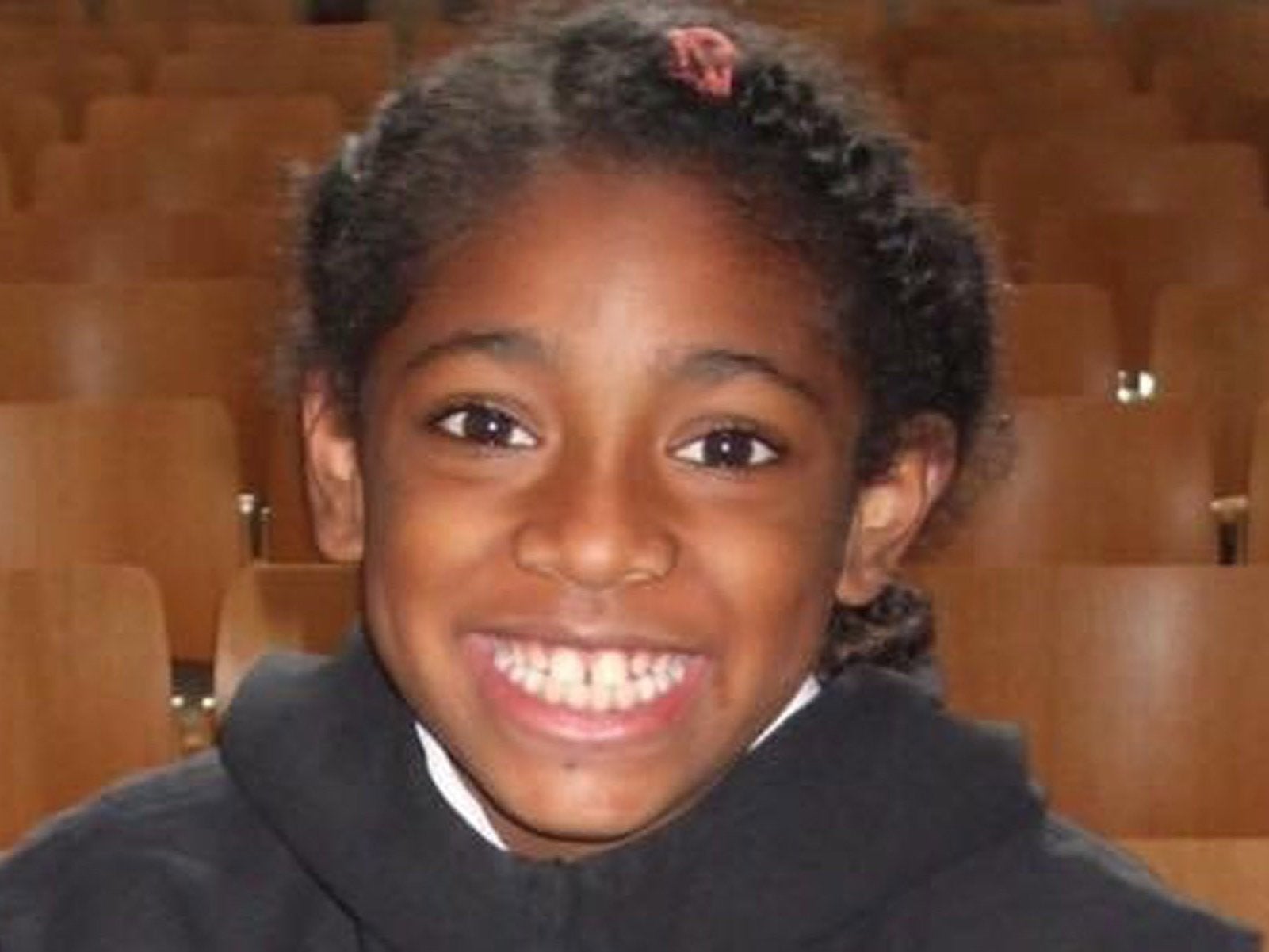Ella Kissi-Debrah death: Family would have moved had they known effects of London’s toxic air pollution, inquest told
Schoolgirl’s mother says parents should be taught about dangers

The mother of a girl who died following an asthma attack while living in a London borough with toxic levels of air pollution has said the family would have moved had they been aware of the effects.
Ella Kissi-Debrah died in 2013 aged nine after suffering years of seizures and making dozens of hospital visits with breathing problems.
Ella’s mother, Rosamund Kissi-Debrah, told an inquest at Southwark Coroner’s Court better education was needed for the public and parents about the “public health emergency” of air pollution.
The court is investigating whether dangerous levels of air pollution in the borough of Lewisham may have contributed to her death.
At the inquest on Monday, Ms Kissi-Debrah said: “The only thing I could have done as her mother would have been to move [house].”
“We literally would have just moved because we were desperate – anything that could have helped. Moving would have been the first thing to do.”
She continued: “There seems to be a disconnect between medical and public health, so public health has all the information and medics don't.
“They need to work together much more closely and it's one of my aspirations – to get public health and medical doctors together, and I think things will be much better.
“Do I think the population at large knows enough? No, I do not. There’s a lot of education to be had.”
The inquest heard that special protocols had been put in place at the hospital so that Ella could receive treatment quickly whenever she was admitted.
She was taken to hospital in the early hours of 15 February 2013, but died shortly afterwards.
Ms Kissi-Debrah, a teacher, said she and doctors had been “looking in the wrong direction” for the cause of her daughter's breathing difficulties.
“We didn't know because there was no rhyme or reason [for the episodes]. She had them at home and she had them in hospital,” she told the inquest. “We were looking in completely the wrong direction.”
She added that although she is now aware of the many air pollution monitoring websites, she believes most parents are not.
“There are 1.1 million children with asthma in this country. I am not convinced that if you did a survey with most of the parents that they would know about these websites,” she said.
“[The information] is there, but it is not getting to the people that need to be gotten to.”
But Ms Kissi-Debrah added that measures introduced to improve air quality would have been too slow to help her daughter.
“People look at things in the long term, so they make decisions and say things like, ‘Oh, this will improve the air in about six or 12 months’,” she said.
“What they do not realise is that if you have someone who is severely asthmatic, they do not have the time to wait.
“Someone like Ella, if she was alive now, she could not wait six or 12 months for initiatives to take hold.”
She described her daughter as “the centre of our world” and said she had been extremely active despite her asthma, enjoying sports and playing several musical instruments.
“She was extremely healthy at birth, there were no complications,” she said.
“She was extremely active, so that by the age of six months she was already in a swimming pool and at nine months we were going to the local gymnastics club.”
Jocelyn Cockburn, Ms Kissi-Debrah's lawyer and friend of the family, said: “The inquest has heard a lot of detailed and scientific evidence about air pollution, but this morning Rosamund, in bravely retelling her account of Ella’s last few years, has described a very human story of suffering behind the statistics.
“Despite the fact that air pollution has been recognised as a public health emergency, the day-to-day impact of air pollution on the health of millions of people, including children, is still poorly understood even by the clinicians treating patients for conditions affected by air pollution.
“If this inquest does one thing, it should ensure that this issue can no longer be overlooked.”
The inquest continues.
Additional reporting by PA


Join our commenting forum
Join thought-provoking conversations, follow other Independent readers and see their replies
0Comments